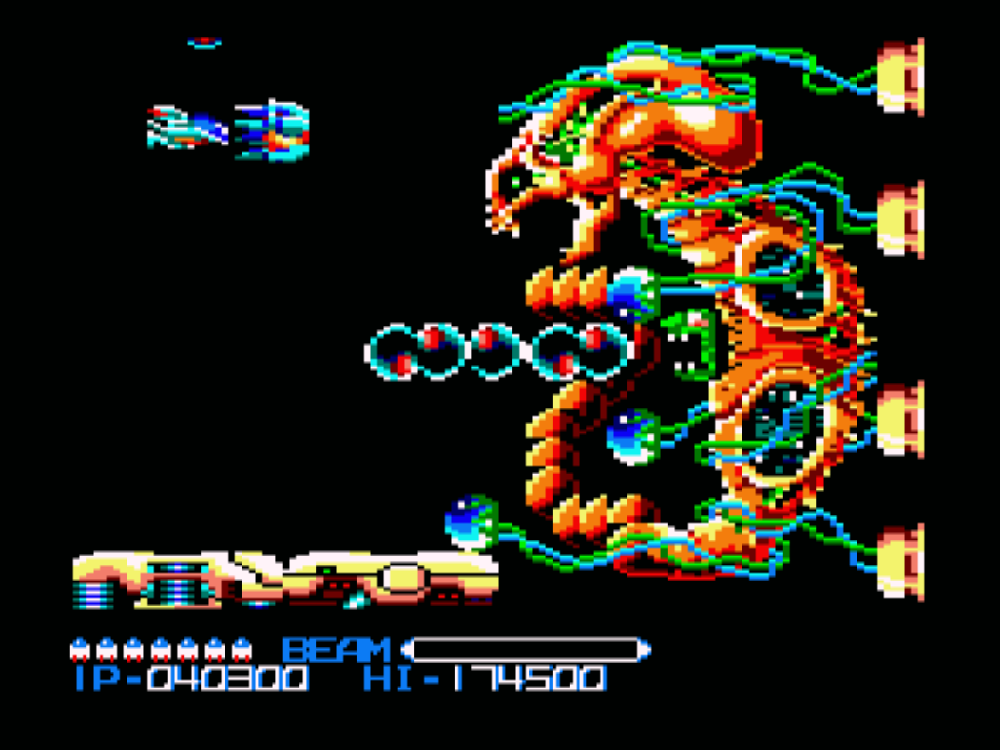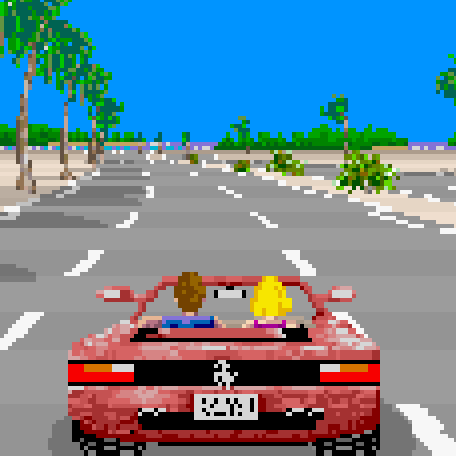R-Type is the greatest game ever made, right? Right? No? Then get off my land, you pervert. It just is.
The 8-bit ports of the game were mixed: the Amstrad got a terrible, slow, drab port. The C64 got a fun shooter that felt loosely based on the source, but which loses points for straight up doing it’s own thing (as the C64 often did).
But it’s the ZX Spectrum port that really shines. More colourful than it had right to be, fast, faithful, fun. It was a weird kind of miracle: so accurate you could even use your arcade learnings to do well at the game.
So, for the 8-bit micros at least, clear Speccy win!
…
But they were, all of them, deceived, for there was another 8-bit computer R-Type made.

On the internet, in the coding forums, homebrew coders forged in secret an Amstrad port to beat all the others. And into this port they poured colour, accuracy, music…
And the result is pretty great. Amazing to see what the Amstrad can really do when it isn’t getting stinky Spectrum ports. I would say this one ties with the Spectrum port for playability.


The ZX Spectrum port was legendary. Couldn’t believe I was playing R-Type in my home back when the arcade machines were so far ahead of what home computers could pull off.
Our local pub had a little arcade section for the kids with R-Type as one of the machines and I remember pumping in plenty of 20p coins into it.
Another fond memory is the excitement of getting R-Types on PSX back in the day.
I guess I need to try out this Amstrad port to see how good it is…
The coder who converted the Spectrum version (Bob Pape) wrote an excellent memoir about how he went about it, his life at the time (he was basically a teenager) and his interactions with the weird, nascent world of gaming development companies. It’s really fascinating and well worth a few hours. And it’s free! It’s Behind You: The Making of a Computer Game